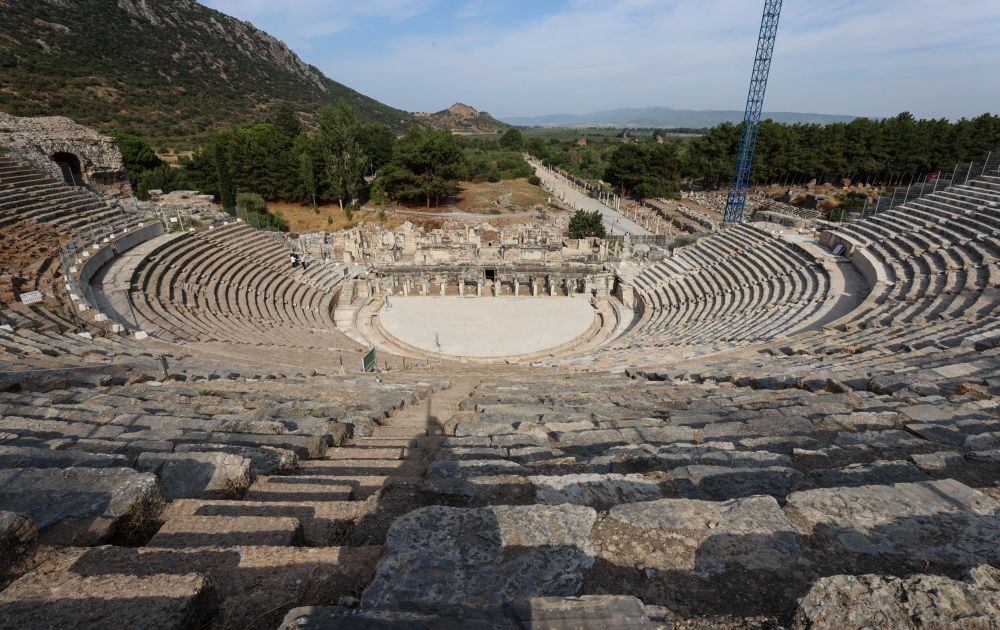

The Ephesus Antique Theatre is an ancient edifice that was an integral part of the city of Ephesus, one of the most significant urban centers in the Classical Mediterranean world. Established as a port city, Ephesus was a hub of trade and pilgrimage. The theater itself is one of the largest ever built by the Greeks, with a capacity that could accommodate nearly 25,000 spectators. It was not only a place for dramatic performances but also an arena for gladiatorial combats in the Roman period and a venue for political and philosophical discourse.
Over time, the site fell into neglect, and it wasn't until the 19th century that archaeological efforts began in earnest. Reclamation and restoration of Ephesus, including the great theater, marked the inception of tourism to the area. The lure of its Greco-Roman heritage, well-preserved structures, and its mention in Christian texts (notably the Acts of the Apostles in the New Testament) made it a place of significant historical and religious interest.
Tourism in Ephesus has a history that stretches over a century. The initial visitors were scholars and archeologists, drawn to its ruins by tales of its grandeur and mystique. In the 20th century, however, as travel became more accessible, the ruins of Ephesus began to draw tourists from around the world. By the 1950s and 1960s, Ephesus had become a staple on the itineraries of history enthusiasts and those embarking on cultural tours of the Mediterranean.
The unveiling of the restored facade of the Library of Celsus in 1978 and ongoing excavations have perpetuated interest in the ancient theater and surrounding city. The Ephesus Museum in nearby Selçuk, which houses artifacts from the site, has served as an additional attraction, bolstering tourism and providing context for the historical site.
In recent years, trends in tourism at the Ephesus Antique Theatre include an increase in sustainable tourism practices. Efforts to preserve the site for future generations have been coupled with the development of visitor facilities that aim to minimize environmental impact. There has also been a surge in experiential and educational tourism, where visitors are not just passive spectators but actively engage with the historical context through guided tours, re-enacted historical events, and multimedia presentations.
Culinary tourism has also found a place in Ephesus, as visitors look to combine their cultural exploration with authentic Turkish gastronomy. Additionally, the region has witnessed a rise in cruise ship tourism, with the nearby port of Kuşadası serving as a gateway to the ancient city.
In the digital realm, virtual and augmented reality experiences are becoming increasingly popular, offering immersive experiences of the Ephesus Antique Theatre to those who cannot visit in person. The repercussions of the global pandemic have only accelerated the adoption of such technologies.
The story of tourism at the Ephesus Antique Theatre is a narrative of historical fascination, evolving travel trends, and the timeless appeal of human heritage. As a testament to its universal value, Ephesus, including its great theater, was inscribed on the UNESCO World Heritage List in 2015, a declaration that assures its place as a cherished global treasure and a perennial magnet for tourists around the world.